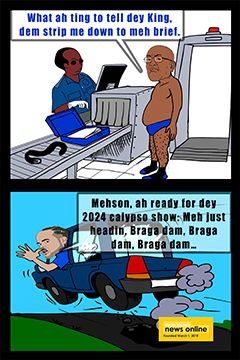Housing benefits: Changes 'sees 6% of tenants move'
About 6% of social housing tenants in Britain affected by changes to benefits partly designed to cut under-occupancy have moved home, BBC research suggests.
Ministers claim the policy - dubbed a bedroom tax by critics - will free up big homes and save taxpayers £1m a day.
The employment minister said 6% - 30,000 people - was "not a failure".
BBC analysis of the data from social housing providers also suggested 28% of affected tenants were in rent arrears, a year after the changes came in.
But Employment Minister Esther McVey disputed the figures on debt, saying her own feedback from local authorities and the National Housing Federation found an "indiscernible number" of tenants were in arrears.
She said 50% of people affected by the change were already in debt.
Continue reading the main story
Housing benefit changes
England, Scotland and Wales
11%
of housing benefit recipients affected by spare room subsidy
-
28% of those affected have fallen into arrears for the first time
-
6% of those affected have relocated
-
3% of those affected have had legal action taken against them, eg evictions
Among the benefits changes introduced on 1 April 2013 was the removal of what ministers called the "spare room subsidy" - social housing tenants deemed to have one spare bedroom have had their housing benefit reduced by 14%. Those with two or more spare bedrooms had reductions of 25%.
Labour dubbed the change a "bedroom tax" and promised to scrap it if it wins the next election.
'Two aims'
Analysis
This research suggests the government is on course to meet a key target, namely to cut the overall housing benefit bill.
Few people moving means more people contributing to their own rent. But doing so it seems will come at the cost of another goal - cutting overcrowding.
Many simply can't move, repeatedly failing to find smaller properties. With demand for new homes constantly outstripping supply, too many families are likely to stay in crowded, unhealthy households.
The increase in rent arrears is not only a problem for those tenants unable to pay. While it could lead to evictions and heartache, it is also likely to cause problems for councils and housing associations.
Not only will their debts increase but their ability to invest in new homes will also be reduced. Given they're the main builders of affordable homes, it will be unfortunate if a policy intended to cut overcrowding leads to fewer homes being built.
The government had argued there were two reasons for cutting housing benefit for those of working age living in social housing with spare bedrooms - to reduce the benefits bill and to help the 300,000 people living in overcrowded accommodation.
But the BBC research - involving 331 social housing providers across England, Scotland and Wales with Freedom of Information requests submitted to council and surveys of housing associations - found just under 6% of tenants whose benefit was cut had moved house.
It also found that while most were paying their rent, 28% had fallen into arrears for the first time in the past 12 months.
Prof Rebecca Tunstall, director of the centre for housing policy at the University of York, said: "There were two major aims to this policy - one was to encourage people to move, and the other was to save money for the government in housing benefit payments.
"But those two aims are mutually exclusive. The government has achieved one to a greater extent and the other to a lesser extent."
Download the dataContinue reading the main story
Affected tenants who had not moved were being forced to make up the shortfall in their income, leading to extra pressure being placed on them to make ends meet, said Prof Tunstall.
'We feel trapped'

Marion Smith lives in a two-bedroom apartment in Dyce, Aberdeen, with her husband Mark and their three children. They are currently 36th in line for a new property in the area.
"It can be quite claustrophobic staying here," said Mrs Smith. "We feel kind of trapped in our situation at the moment, so that impacts on us.
"The children are all in one room, so it can be stressful for them. They don't get any space away from each other. Our oldest child is eight and she's at the stage where she's needing a bit of space now and hasn't got the same interests as my youngest child, who's four."
The family had hoped the benefit changes would result in more properties being freed up. "It's not fair for people like us at the moment," Mrs Smith said.
With one property available each year in her area, Mrs Smith said her family faced waiting for "decades". "Realistically, we're going to have to wait until I'm in full-time employment and can start saving for a deposit and can buy somewhere," she said. "We've accepted that, although it's depressing."
Asked if the policy had proved successful, she added: "To some extent it's achieved some of its aims. It's achieved an aim of making a saving in housing benefit for national government, probably slightly less than they'd originally hoped for.
"But there are other knock-on costs. There's a social cost for tenants and a cost of having less efficient and fewer new homes. And you can imagine that those costs can start to mount up.
She said that while tenants in arrears could have been in debt for other reasons, the fact remains that there is "new debt for local authorities and that means fewer pounds to go round to spend on improvements for others".
Carl Mitchell, assistant director of Riverside Housing Association, based in Hull, said the service had noticed an impact in the past 12 months.
He said: "Approximately two thirds of all tenants affected by the bedroom tax essentially struggle to pay the rent and associated bills.
"So by default that usually means that people are ether falling into rent arrears or having to compromise on other things such as fuel costs and the cost of living in respect of food. So there's a knock on effect elsewhere, it's not just rent arrears.
"From Riverside as a service, the lack of income coming in does mean it impacts on the new build properties that we have to build, and services that we offer to tenants."
Labour's Chris Bryant, the shadow work and pensions minister, said: "Trapped with nowhere else to go, thousands of people have had no choice but to fork out an extra £14 a week.
"David Cameron's government have pretended this was all about helping people who are overcrowded, but in truth the bedroom tax is a cruel, unfair and appallingly administered policy."
'Right thing'
But Work and Pensions Secretary Iain Duncan Smith said: "It was absolutely necessary that we fixed the broken system which just a year ago allowed the taxpayer to cover the £1m daily cost of spare rooms in social housing.
'I had no choice'

When the changes came into force, Jayne Dennis was one of those who moved from her three-bedroom home.
Ms Dennis said her children had moved out and she was then under-occupying by two rooms, with a cut to her benefits of £12 per room. "With that really, I had no choice but to move," she said.
In her old home, she started to build up arrears. "I was finding it difficult to pay that," she said. "You've got your other bills at the same time. You don't pay it all, you pay like half of it, because you haven't got the money."
She said her old home had been vacant for three months. She said. "You'd think they'd have filled it by now, but no. I think it's because we're out of the way and a lot of people don't like to be out of the way."
"We have taken action to help the hundreds of thousands of people living in cramped, overcrowded accommodation and to control the spiralling housing benefit bill, as part of the government's long-term economic plan.
"Our reforms ensure we can sustain a strong welfare safety net, and we are providing an extra £165m next year to support the most vulnerable claimants."
Ms McVey said the benefit change was helping to get social housing tenants out of debt.
"I question your [BBC] figures because actually what I'm hearing back from the local authorities and the National Housing Federation is that an indiscernible number of people are getting in to arrears," she told BBC Breakfast.
"The statistics that we're getting back are that we're helping people to live within their means and move to a property they can afford.
"We've got to look at this from a full 360 degree angle. It's very difficult, I don't dispute that, but we're doing the right thing."










.png)




.png)



.png)






















Leave a Reply